NAPOLEON (2023)
An epic that details the checkered rise and fall of Napoleon Bonaparte and his journey to power through the prism of his volatile marriage.
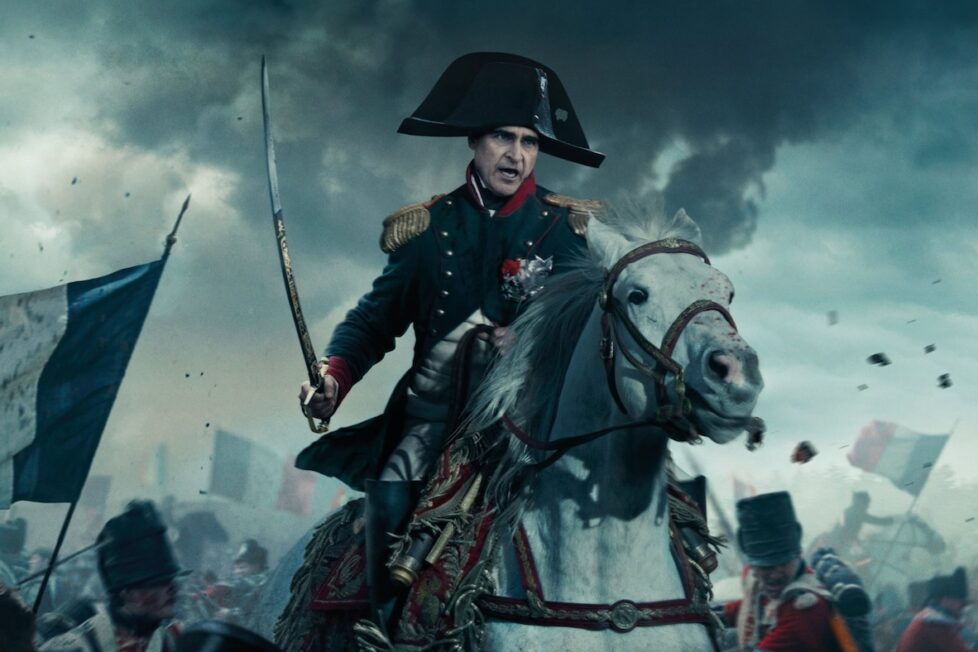
An epic that details the checkered rise and fall of Napoleon Bonaparte and his journey to power through the prism of his volatile marriage.


1793, Paris. Marie Antoinette is dragged out of her chambers and hauled into the street, whereupon she’s swiftly guillotined; her head held up in front of a bloodthirsty crowd. As the mob screams, Napoleon Bonaparte (Joaquin Phoenix) stands stoically at the back of the courtyard, watching the ceremony with cold and calculating eyes.
In this opening sequence, we’re reminded that Ridley Scott, director of epics like 1492: Quest for Paradise (1992), Gladiator (2000), Kingdom of Heaven (2005), and Exodus: Gods and Kings (2014), still has a flair for lavish historical set pieces. There’s excess, fantastic costumes, and vivid performances from the legions of extras.
But while we’re engrossed in the spectacle of Napoleon, we’re also reminded that Scott’s always been willing to embellish history to create a captivating narrative. One historian, exasperated by the filmmakers’ liberties with documented events, walked off the set of Gladiator, while another refused to be associated with the project. This tendency to prioritise narrative drive and dramatic impact over historical accuracy is evident in Scott’s latest movie.
In reality, Napoleon didn’t witness Antoinette’s demise.
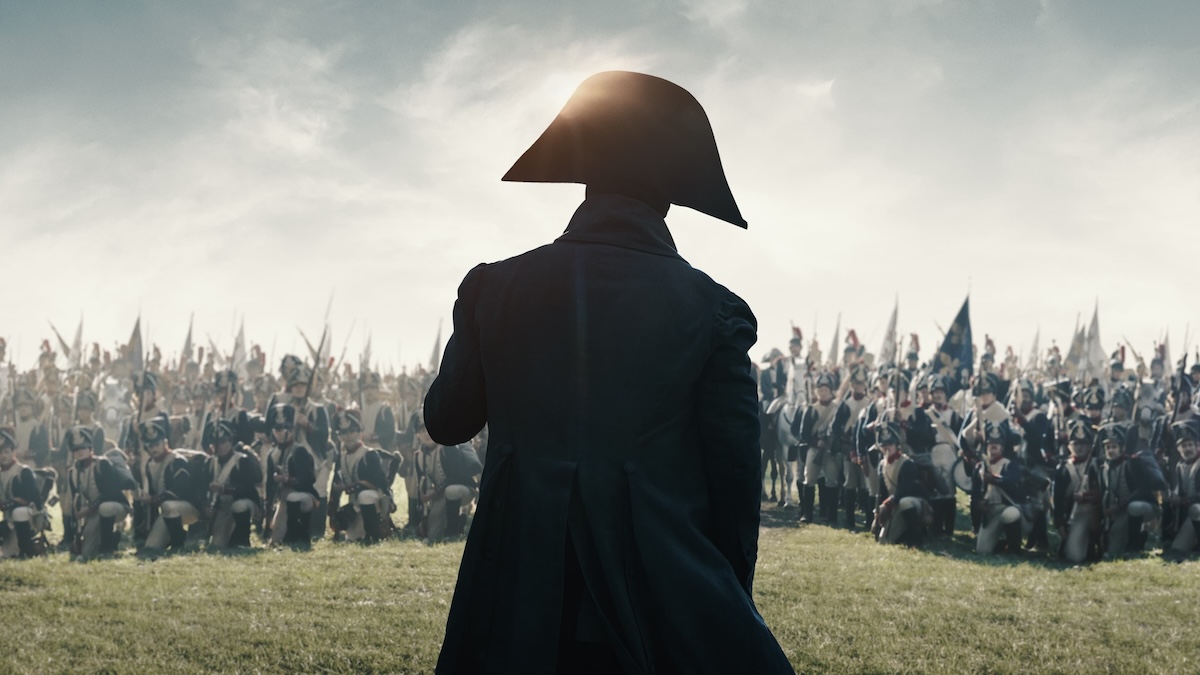
Though one might assume this is the first historical inaccuracy in Scott’s new epic—given the fact it appears in the first scene—that would be a misconception. The poetic license taken in depicting one of history’s most famous figures precedes even the opening credits: the marketing tagline ‘He rose from nothing. He conquered everything.’ This statement is simply not true. Born on the island of Corsica, Napoleon belonged to an Italian noble family. Since his childhood isn’t even portrayed in the film (nor mentioned throughout), it seems an odd choice to promote his story with this slogan. Perhaps it tested well with audiences…
Regrettably, factual accuracy isn’t the only casualty in Scott’s new historical epic. Seeking to enhance its marketability, the director expressed his intention to craft a film within the two-and-a-half-hour mark, asserting that the average viewer won’t tolerate a significantly longer runtime. This presents him with an immediate quandary: when dealing with one of history’s most captivating figures, what do you choose to omit?
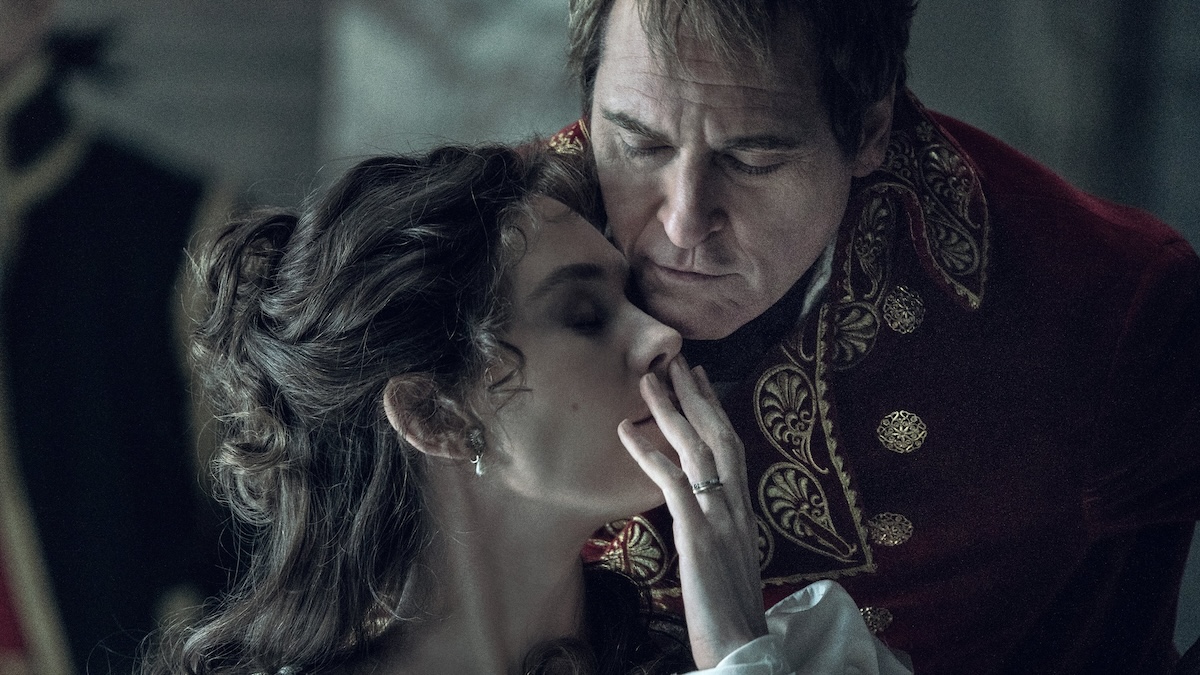
Biopics have always presented a conundrum for filmmakers. Ideally, they should offer a penetrating insight into an individual’s personality, motivations, and psyche by presenting a dramatic slice of their life. However, even then, these films are often incredibly long. Lawrence of Arabia (1962), Gandhi (1982), Malcolm X (1992), and Schindler’s List (1993) all exceed three hours, while Amadeus (1984) comes close at 160 minutes. Abel Gance’s tour-de-force biopic Napoléon (1927) clocked in at five and a half hours, yet covered only his early years in power. It was intended to be one of six instalments chronicling the dictator’s life, though the rest never came to fruition.
In stark contrast, Scott’s Napoleon spans over two decades. It ambitiously attempts to cram in the political world Bonaparte exploits, his personal relationships, and his remarkable military campaigns. While watching, one can’t help but feel that certain scenes are too short. Interactions between some characters are fleeting and fail to delve into the depths of their thoughts and motivations. It’s important to note that despite their extended lengths, the aforementioned biopics never felt bloated. Moreover, they only attempted to convey a portion of their subject’s life experiences, not the historically dense epochs such as the French Revolution, the Emergency, the French campaign in Syria and Egypt, and the Napoleonic Wars.
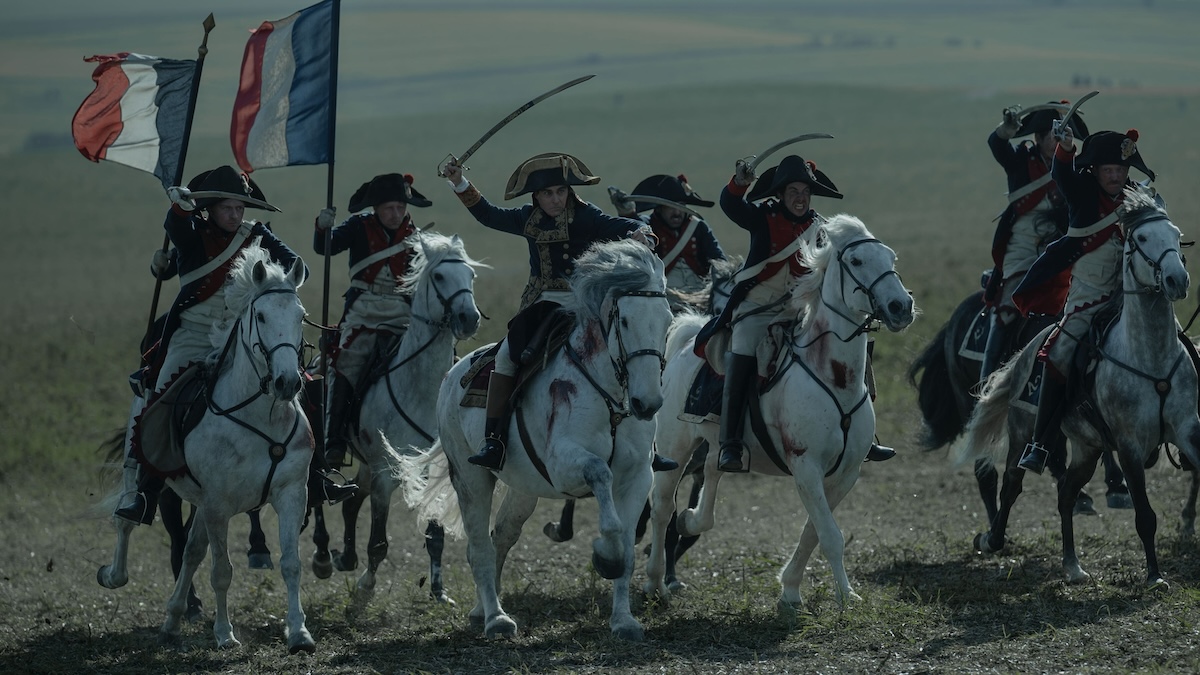
Naturally, certain historical details must be spared to tell a story effectively. Scott seems more dedicated to crafting a character study of the French Emperor than producing a detailed historical drama. Consequently, Napoleon emerges as a portrait of tyrannical pathologies, though one that has been (once again) labelled as far from accurate. Napoleon is portrayed as a petulant, insecure man-child. According to most documentation at the time, this fails to capture the intellect of a skilled statesman and military genius, or the charismatic allure that inspired a broken country. While he undoubtedly wielded dictatorial power and committed human rights abuses, while suppressing political dissent, turning Napoleon into a caricature squanders an opportunity to analyse a complex man for a modern audience.
Despite its narrative’s shortcomings, Phoenix’s portrayal of Napoleon Bonaparte is captivating. He refrains from attempting a forced French accent—and neither does anyone else, thank God—and brings a layer of vulnerability to the man that’s enthralling. Reportedly, Phoenix’s portrayal was so compelling that it inspired Scott to change parts of the screenplay to suit his lead actor’s interpretation better. This could also provide perspective on how the characterisation went more than a little askew, as modifying a shooting script on a whim will obviously muddy the perspective of a real-life figure.
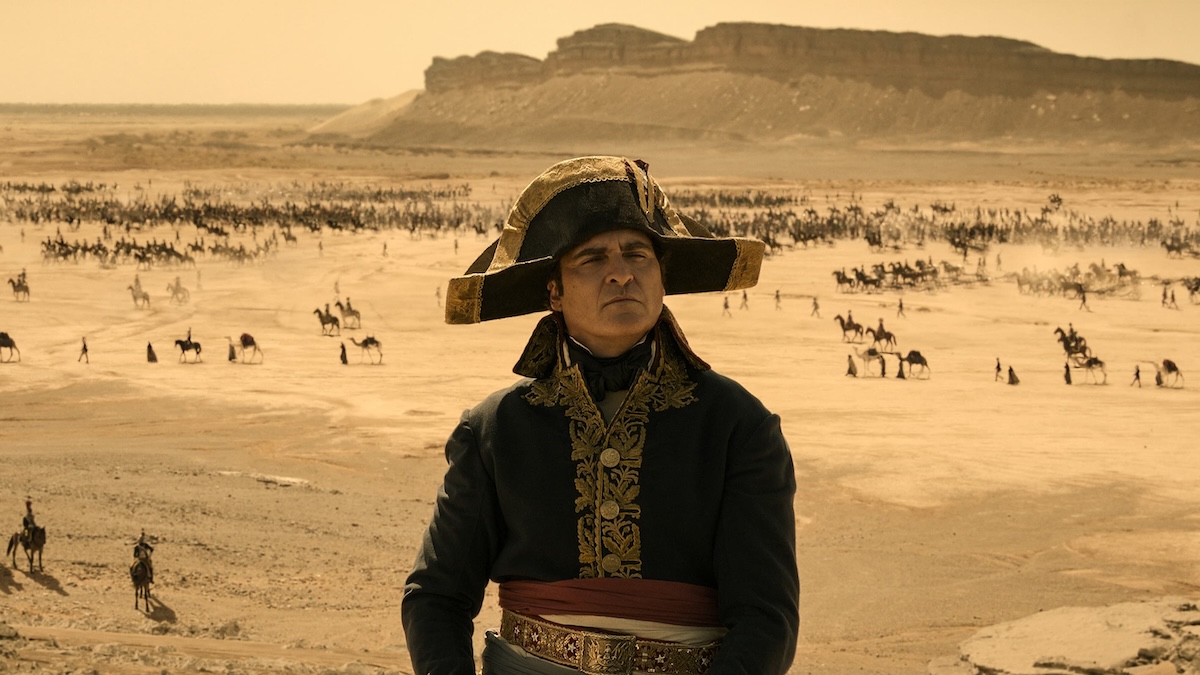
Having said that, Phoenix is magnetic and his interactions with Vanessa Kirby (playing his paramour Empress Joséphine) are very well performed. Their palpable chemistry allows us to dip in and out of their love story without narrative momentum ever feeling truly lost. They’re both romantic and toxic in equal measure. Though Kirby’s performance as the Emperor’s life-long love is occasionally overshadowed by Phoenix’s dramatic turn, she still manages to steal the show with just a few scenes.
Due to the caricatured angle of Napoleon, the film blurs the lines between comedy and historical accuracy. While most dictators possess immense egos and tend towards megalomania, the lack of perspective on Napoleon’s motivations renders his hostility almost cartoonish at times. Again, this is something that could’ve benefitted from a greater runtime, so perhaps Scott’s already announced extended cut—which runs longer than four hours—will provide a deeper insight into his psychology.
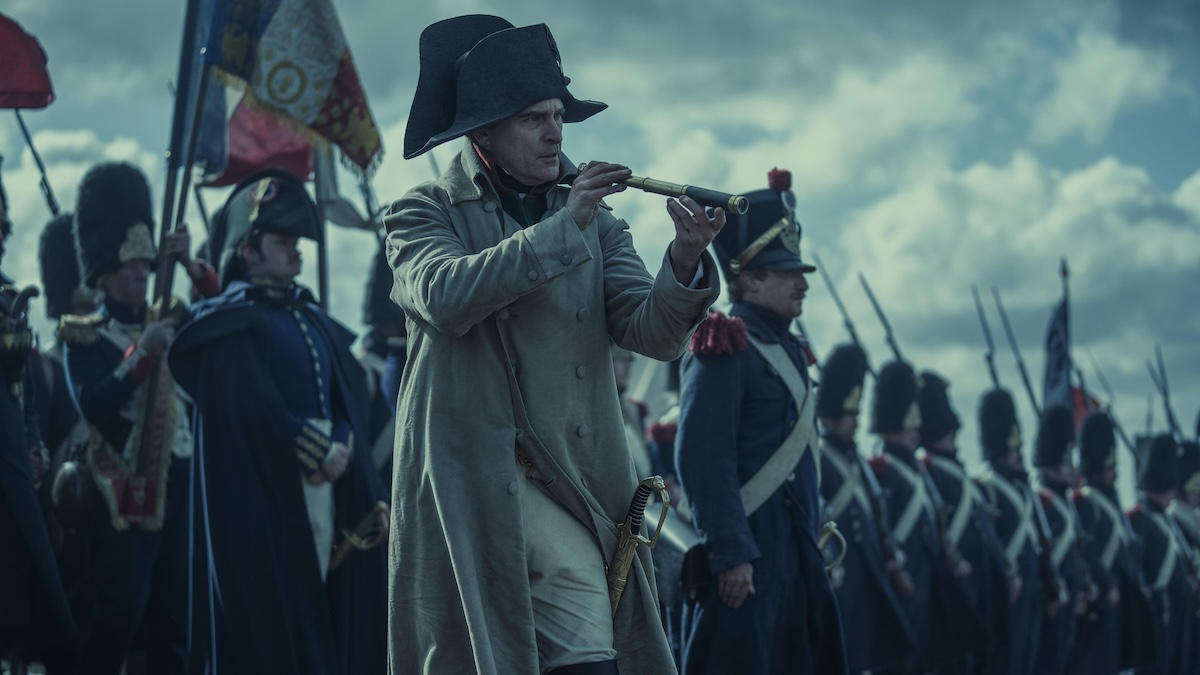
Scott’s strength lies in the meticulously choreographed and expansive battle sequences. These scenes alone make up for his disregard for historical accuracy. It’s in these moments that he demonstrates his ability to craft a crowd-pleasing blockbuster. While I eagerly anticipate the four-hour cut on Apple TV, I would have loved to see it on the big screen. The vastness of these conflicts demands the grandeur of a cinema screening, as settling down to watch it in your living room simply won’t ever deliver the same impact.
The budget for the project is evident in the action scenes. Produced for $200M—coincidentally the same budget as Martin Scorsese’s Killers of the Flower Moon (2023), another Apple film this year—it’ll be fascinating to observe whether it can recoup its investment. Sadly, Scorsese’s examination of greed and dehumanisation in 1920s Oklahoma is set to be a box office flop. Scott’s cynicism over a modern audience’s willingness to sit in a cinema for more than three hours will likely prove accurate. Despite middling reviews, I suspect Napoleon will perform better at the box office.
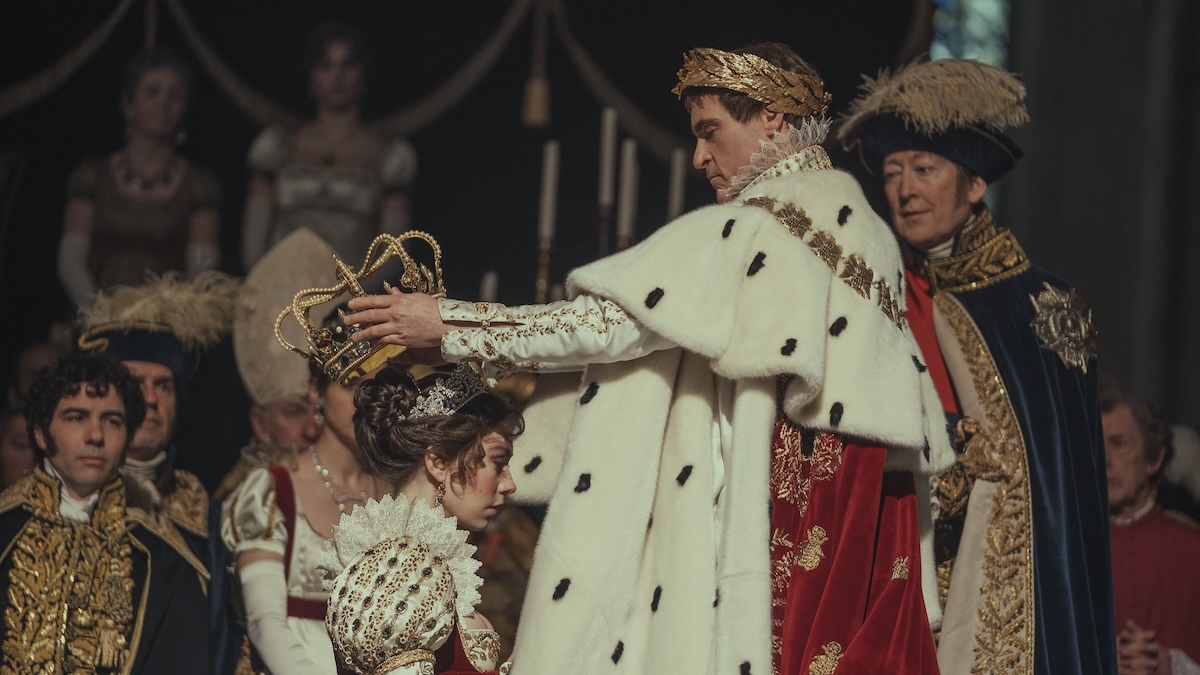
Perhaps the biggest takeaway is that Napoleon doesn’t bode well for Scott’s next historical epic: Gladiator 2. If that sequel’s anything like this movie, it’ll lack a commitment to any one genre and instead end up being a mishmash of about five, devoid of heart or interest in factual precision.
Napoleon also sparks a new debate: how much creative license are we willing to give creators who have no interest in depicting history faithfully? On the press tour, Scott has told critical historians to “Get a life.” The irony of this dismissal is that the subject of his latest film is their life; their very livelihood involves understanding the nuances and intricacies of people and time periods that he clearly doesn’t. When pressed further, Scott continued “When I have issues with historians, I ask: ‘Excuse me, mate, were you there? No? Well, shut the fuck up then.'” His emotional fragility is reminiscent of a certain dictator, whose name escapes me…
This film will be enjoyed for what it is: a popcorn movie with extravagant costumes and well-executed battle sequences. Unfortunately, these aren’t really the things that sear into the pop-culture subconscious, nor impress fans of Scott’s earlier masterpieces. Like some of his other recent duds (Robin Hood or the aforementioned Exodus: Gods and Kings), this latest outing will most likely be forgotten… unlike the leader it portrays.
UK • USA | 2023 | 157 MINUTES | 2.39:1 | COLOUR | ENGLISH

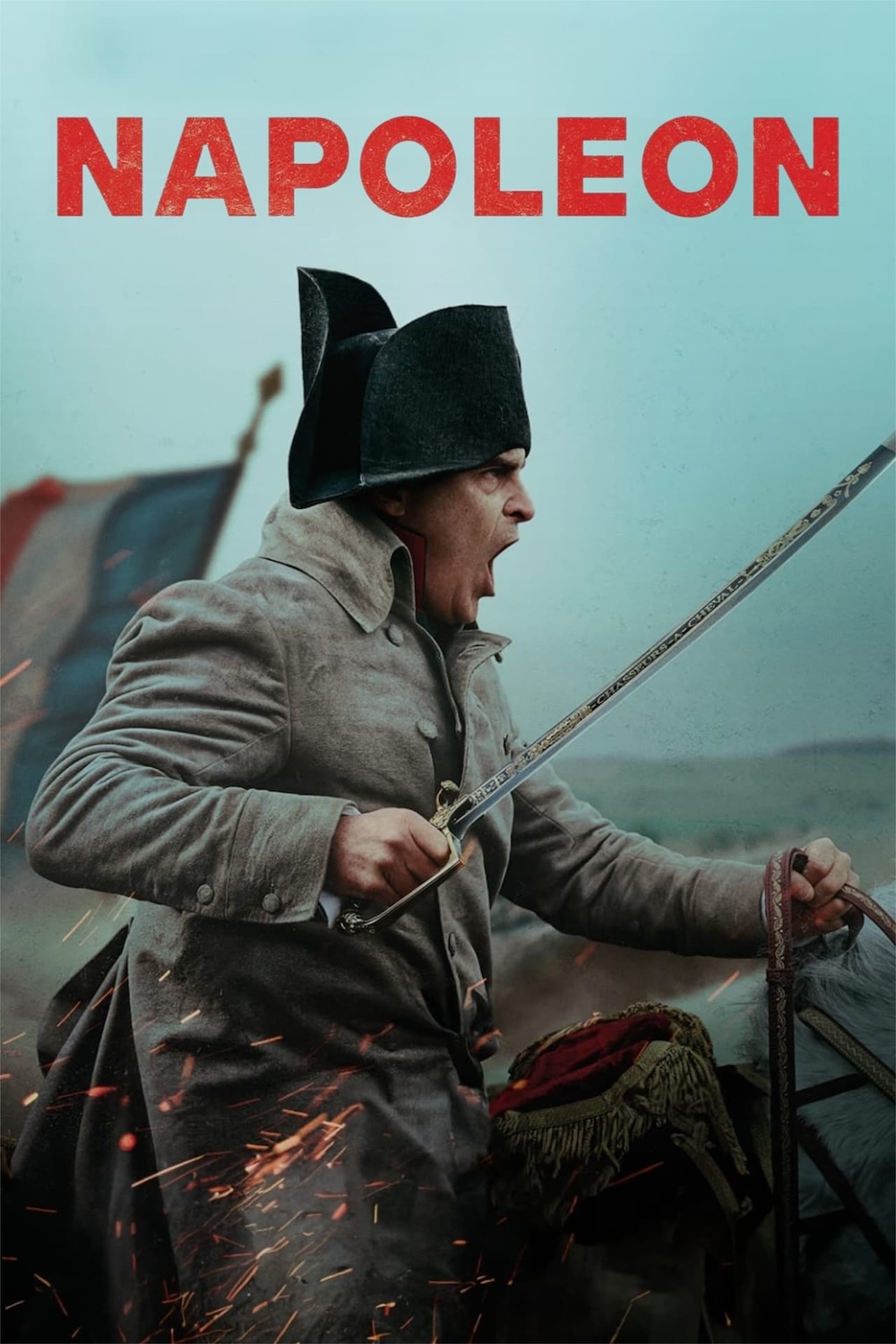
director: Ridley Scott
writer: David Scarpa
starring: Joaquin Phoenix, Vanessa Kirby, Rupert Everett, Tahar Rahim, Ben Miles, Ludivine Sagnier, Matthew Needham, John Hollingworth, Ian McNeice & Youssef Kerkour.
